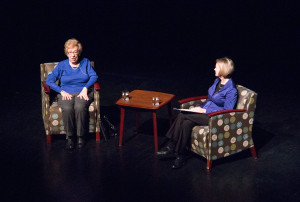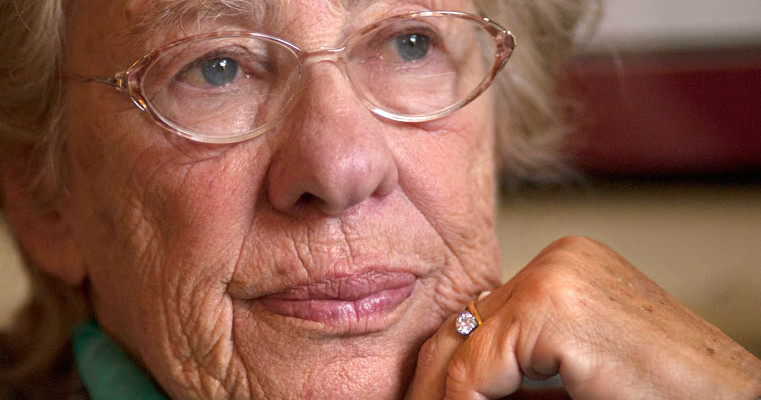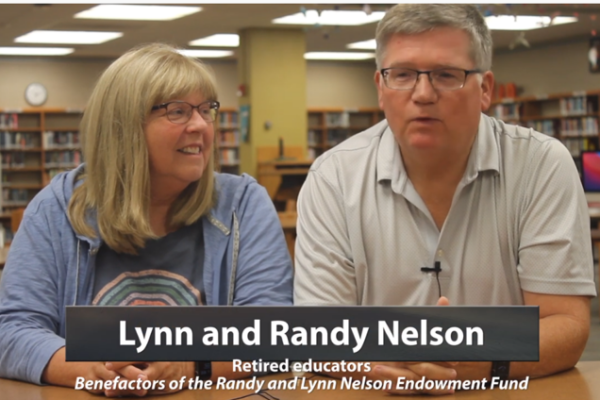LPEF’s Freedland Shoah Study Fund awards grants totaling $3,219
Students at La Crosse Lincoln and Logan middle schools will learn more about the history of the Holocaust and its relevance to today’s events thanks to two classroom grants supported by an endowment fund set up for the La Crosse Public Education Foundation.

Holocaust survivor Eva Schloss (also pictured above) shares her story in a talk at Viterbo University. (Photos courtesy Viterbo University)
Two grants totaling $3,219 have been awarded from the Maureen and Robert Freedland-LPEF Fund for Studies of the Shoah, an endowment established at the La Crosse Community Foundation in 2007 in memory of family members and all those who come to America in search of religious freedom.
- $1,135 was awarded to Jill Gorell and the 8th-grade unit at Logan Middle School for a fourth-quarter study of the Holocaust. Books will be purchased and supplemented by a presentation from Tim Scott, a Western Wisconsin attorney who is a frequent public speaker in schools, helping students understand the Holocaust and how it relates to current events.
- $2,084 was awarded to Scott Bagniefski and a team at Lincoln Middle School to create a traveling library of Shoah materials for use by 7th-grade and 8th-grade classes. Books will include novels and the story of Holocaust survivor Eva Schloss, so students can learn her story before hearing her speak next spring at Viterbo University. Lincoln teachers will attend Viterbo’s Holocaust Educator Training. Lincoln also will host an appearance by Tim Scott with plans to invite members of the Washburn Neighborhood around the school.
The Maureen and Robert Freedland fund has been established for the benefit of La Crosse Public School District students to advance their understanding of the Shoah, the systematic genocide against the Jewish people and other “undesirable” groups targeted for destruction by the Nazi regime in World War II. In addition to exposing students to the history of the Shoah, teachers are encouraged to help students to recognize the events and beliefs that made the Shoah possible and relate them to events around the world affecting people of many nationalities and religious beliefs.
“Through these grants, we hope students will come to better understand lessons of the Holocaust that may apply to current events and beliefs, such as the persecution of minorities, including Christians in the Middle East, or the refugee policies that are debated today,” said Maureen Freedland.
For more information about the Shoah Studies grants, contact the LPEF office at 787-0226, or find application forms and other background here.


